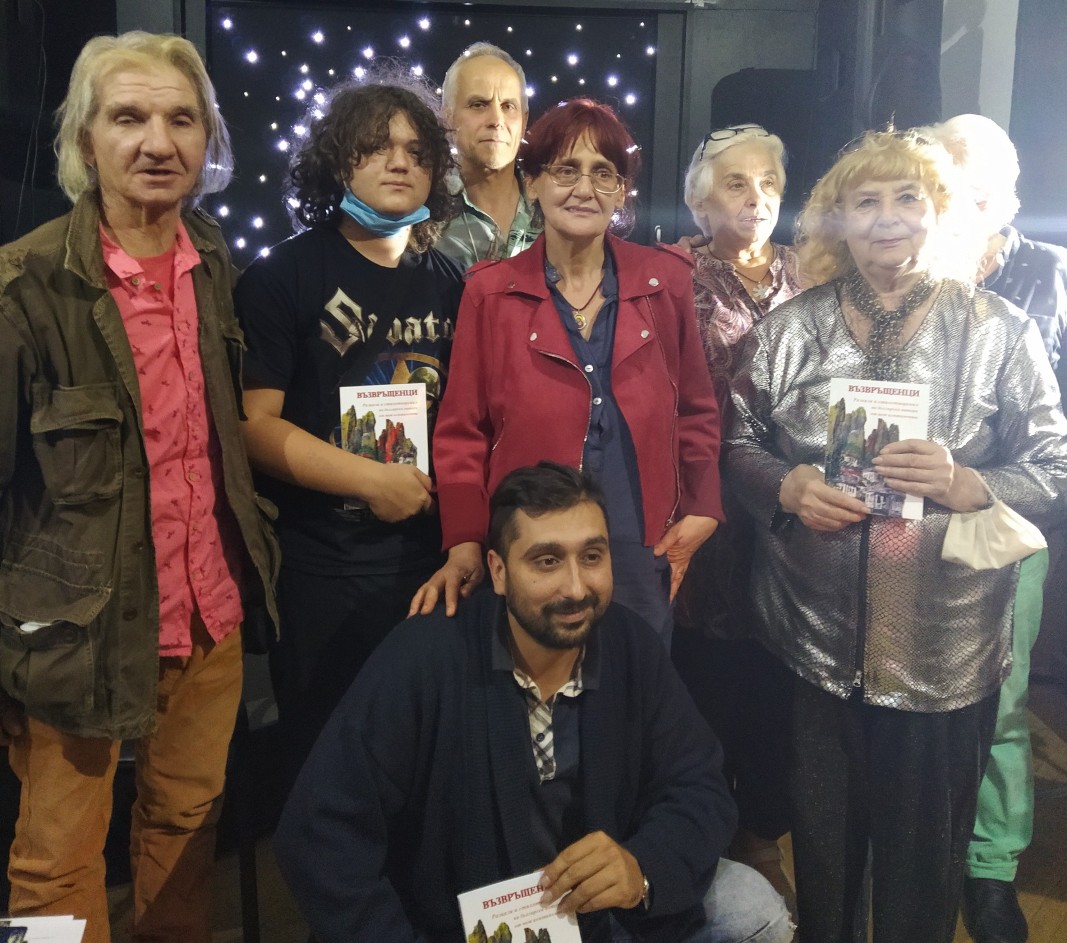Now that the world pandemic is making a physical return difficult, we can return home in our imagination, or with words. But what are Bulgarians, scattered around the world returning to? The answer comes in a collection of short stories and poems.
The publication of the fifth collection of short stories and poems by 68 authors, entitled “Returnees”, was sponsored by Bulgarians from all over the world. The word – returnees – is a throwback to communist times, when the people who fled the communist regime were branded “non-returnees” because they were leaving the country knowing full well they could never come back. Now people can return, though they are never the same.
“They are returning to the deserving past of Bulgaria and of Bulgarian culture at the same time,” says writer Marin Bodakov who presented the collection. “But they are also returning to the language and we can see what sweetness it is to use it, what exultation the authors of these texts feel in using rare ancient words and expressions.”
Tanya Panova has been working with words all her life, but it was only when she stopped working as a journalist that she ventured to present a work of fiction – her short story “How to weave a song”.
“The exact same way that you weave a rug,” says the author. “You have to take the base out of your mind, pick out the words with your heart and arrange them, because as the shuttle moves you have to sing your song. The living classic Anton Donchev says that there comes a time when Bulgarians have to start creating their own song. A song is an entire story, just like Bulgarian embroidery. It is the story of a clan, of a family.”

With his essay “Lament” 15-year old Yordan Ignatov won the national school competition “Return to the roots.” Himself a descendent of refugees from Eastern Thrace, Yordan tells the story of the return of his relatives, banished from their lands, along with thousands of others, after the end of the first Balkan War.
“Bulgaria today is very different from what it used to be,” Yordan Ignatov says. “People used to be oppressed but they stayed where they are waiting for the country to retrieve its territories. After communism fell they were able to travel to other countries. Some of those who emigrated now want to come back but what is stopping them are the substandard politicians and the low pay. Others don’t want to live here and that makes me a little sad. I wish I could change their minds and help them see Bulgaria through their own eyes, to invest, to do something and see for themselves that they might well succeed.”
Left far from home due to the travel restrictions, the Bulgarians scattered in other countries are conveying messages inside language capsules, Marin Bodakov says.
“They all offer different strategies for overcoming sadness, for overcoming nostalgia, for making sense of the bridge between the place they now live, and their country of birth.”
Photo: Diana Tsankova
The 10th edition of the Animaphix festival for animated films in Sicily, Italy, d edicates a special retrospective to the Bulgarian artist Teodore Ushev , who today will be honored with the Guttuso Award for 2024, reports BTA. Theodore Ushev:..
Bulgarian prominent writer of fiction, author of game books and translator of Tolkien, Lyubomir Nikolov, has passed away at the age of 74 on July 20, his relatives announced on social networks. Lyubomir Nikolov aka Narvi is the award-winning author..
Today at 13h00, the exhibition "Under the Protection of the Holy" will be opened at the National Library of Sts. Cyril and Methodius in Sofia. The exhibition comprises 16 thematic panels with manuscripts, archival documents, old printed books and..
The "Ivan Vazov" National Theatre will delight 120 fans of theatre art with a free ticket to one of the productions of its new season..

+359 2 9336 661
